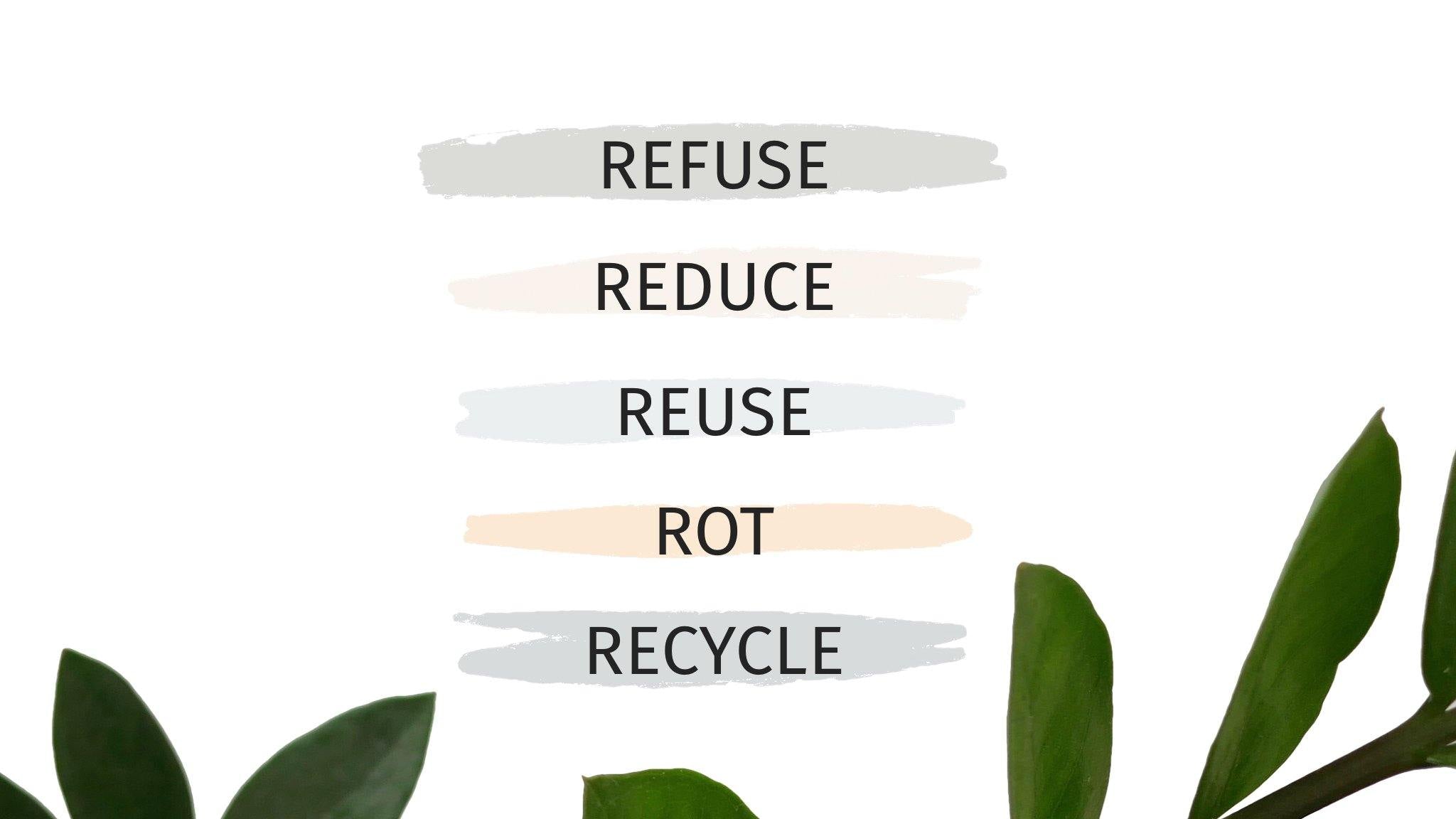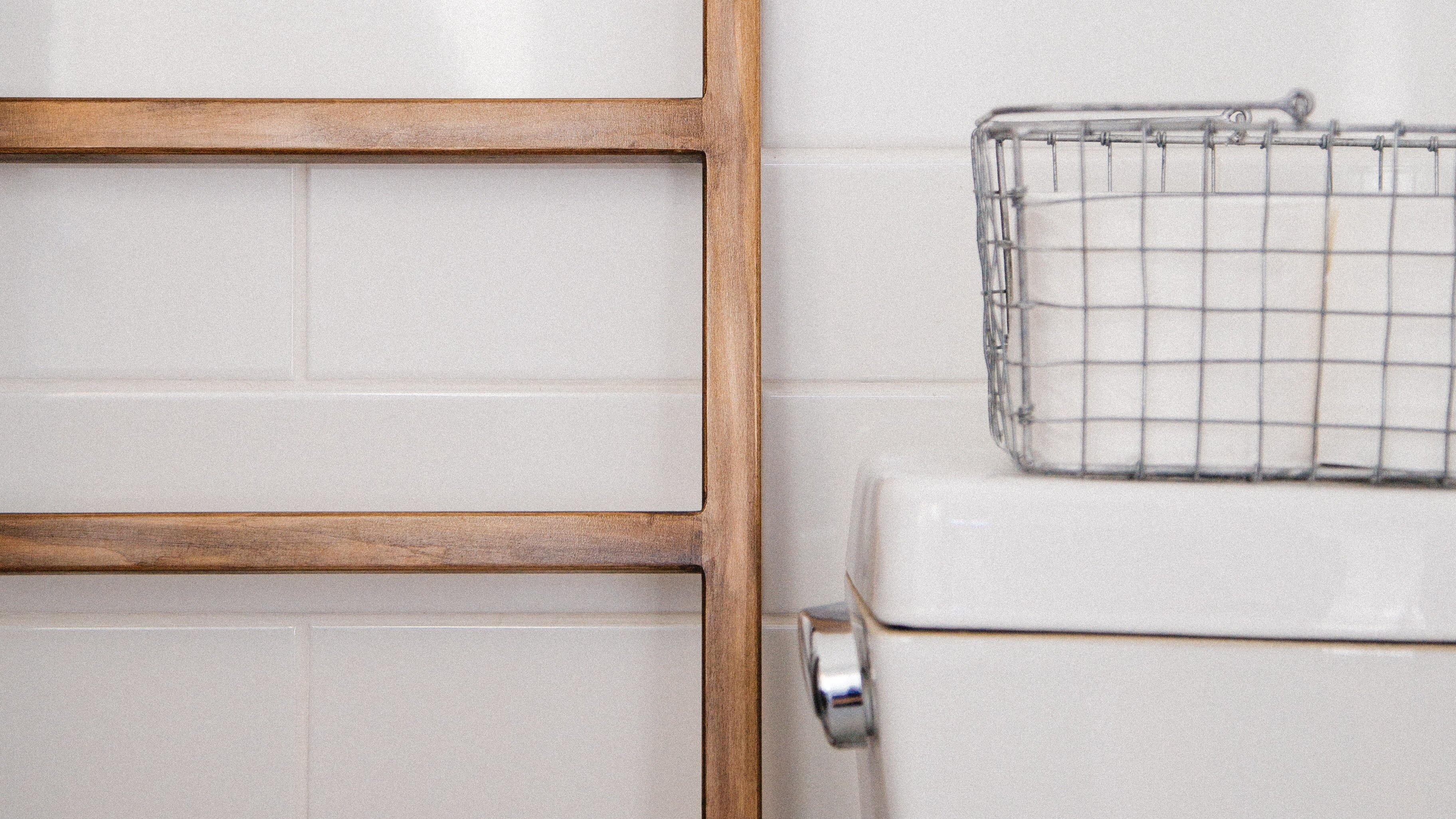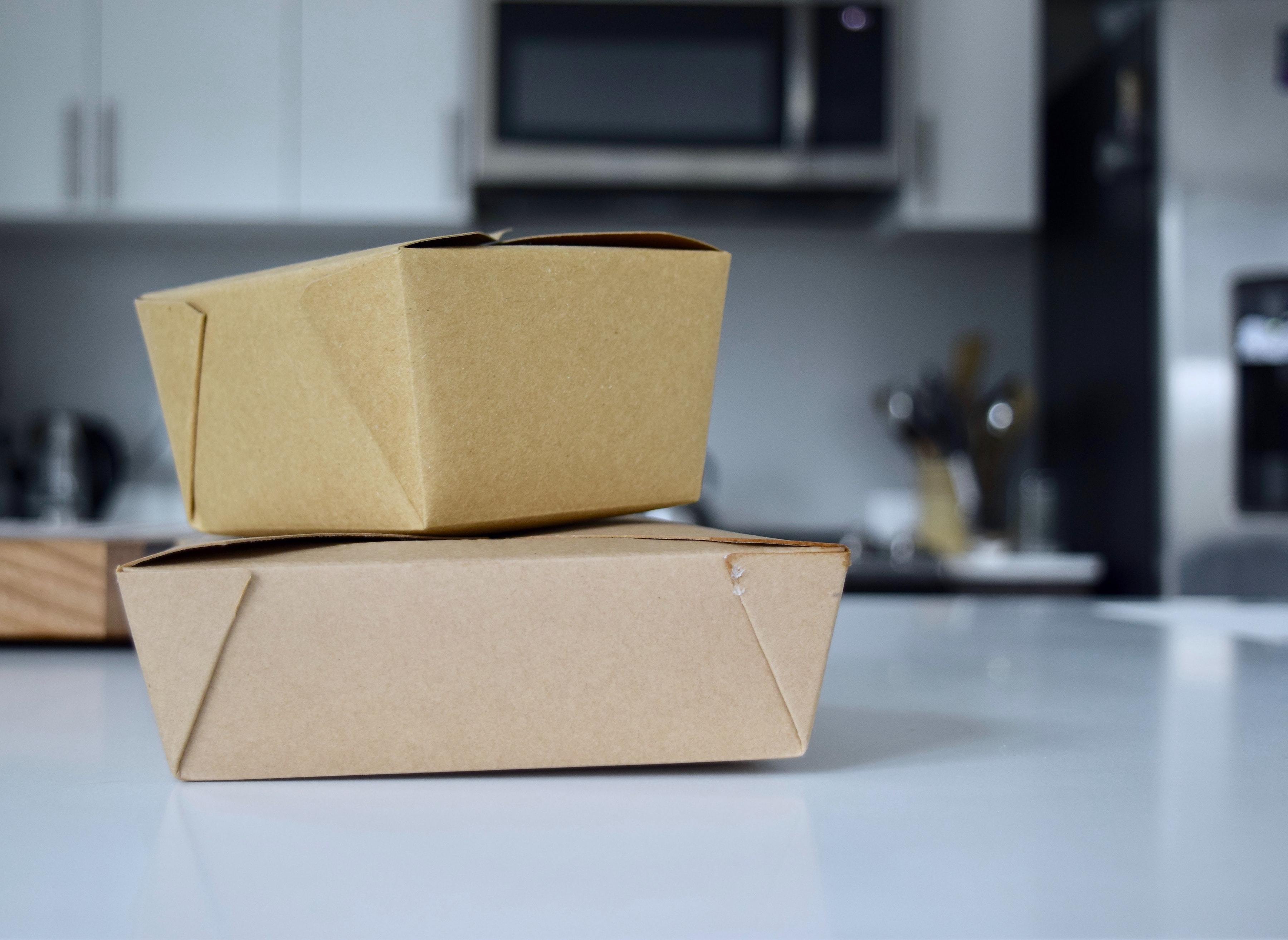
5 Principles of Low Household Waste
So, What is Zero Waste?
It is a way of living or doing business that avoids waste as the end result of consumption. Our current model of consumerism functions like this: We take resources, we make products, we use them (typically pretty fast), then we throw them "away" when we are done. This is how a linear economy functions.
However, in a circular economy, there's infinite purpose in the things we create and use. This system considers how a product will impact people and the planet throughout its entire lifespan from creation to disposal.
The term Zero Waste is tricky. We will naturally produce waste just by living on this planet. George Washington Carver, a botanist and inventor held a very simple, but profound perspective on waste:
"Waste is man-made. Nature produces no waste; whatever is consumed is returned to the whole in a reusable form. Man fails to utilize appropriately the bounty of nature."
We may not be able to change the way businesses sell to us overnight, but we get to vote with our money and our lifestyles. The more we recognize the importance of this change in mindset, the more likely it is that society will begin to function in a way that doesn't leave us feeling guilty about simply existing.
So back to the 5 principles..
Refuse what you do not need. Reduce what you can't refuse. Reuse instead of tossing. Recycle anything that can't be reused, or refused. Rot what is compostable.
The first two principles encourage the prevention of waste.
1. REFUSE
This may be my least and most favorite step all at the same time! Refusing what we don't need is so life giving. There is less to take care of and more life to enjoy.
We (mostly) refuse:
- Fast fashion and any company that uses unsustainable practices. We do our best to buy used first and second responsibly made if we need something new or are willing to spend money on a company with good people and planet policies. There are so many resources all of the web for ideas now.
- All plastics (except what we absolutely can't avoid)
- Disposable items like to-go containers or to-go boxes, etc.
- Junk Mail. Eco-Cycle can help you with this!
2. REDUCE
Reducing what you can't refuse or what you already have helps you simplify your needs. It also helps you focus more on the quality of the things you have and less on the quantity. Reducing has more to do with evaluating your actual needs.
This step wasn't so hard for us because we typically only keep things we actually need. Traveling back and forth from Costa Rica, staying 3 months at a time, helped me realize I didn't need much more than I could fit in a big suitcase.
We have reduced:
- Leisure shopping trips. This decreases "I need" thinking that supports unnecessary consumption.
- Gimmicky items that don't last.
- Unnecessary cosmetics
- Household cleaners
3. REUSE (and repair)
Reusing replaces the need to use disposables.
How we reuse:
- Shop with reusables. We bring our own water bottles, coffee cups, produce bags and containers for things like meat and cheese. This is easiest at places like Whole Foods, local bulk/organic markets, etc.
- Use reusables instead of disposables. We shop in bulk when we can, bring reusable containers when we know we will have left over food if we go out.
- When something is broken or torn, find ways to repair it.
4. ROT
Composting cuts down on the need for plastic bags in your trash can and significantly reduces landfill waste. Composting is simply a matter of putting food and natural organic matter back into the ground where nature intended it to go. This serves the purpose of replenishing resources. Composting may take a little creativity on your part, but can divert 20 to 30 percent of landfill waste where methane gas production is a huge problem. Whether you are in an apartment in the city or have your own backyard (how to here), there are definitely composting options for you.
Some people in small spaces choose worm bins or freeze a bowl of food scraps until they can either give it to a local farm at their farmers market or send it to a local compost company. If you are in the Nashville are, you can drop your compost off for free with The Compost Company. For those outside the are, you can check online to learn about your city's composting resources.
How we compost:
- We have a small pale in our pantry for food scraps. We put all veggies and fruit scraps that we don't use for broth in a compost pile out back. We layer our yard waste over the food and it helps break down the food scraps even faster. We compost cotton, paper, and hair scraps as well. Most animal product waste we avoid in the compost since it takes longer to break down and invites critters. We do eat a small amount of local or regional meat though, and dispose of any bones in the woods after we've used them for broth.
5. RECYCLE
Recycling isn't the answer to waste and is definitely on the bottom of this list for a reason. It is, however, a great start for reducing waste. Check with your city's website about what types of things you can put in your bin. If you don't have recycling, call or write your representatives.
We try to avoid packaged foods if we can because of the resources it takes to recycle, but if you have food allergies or don't have the time to make things from scratch, you may not be able to avoid it. One suggestion is moving toward a local diet. It helps eliminate waste, and can actually help reduce allergies and boost immune systems. For items that you do need to purchase in packaging, check out our blog on recycling!
I'm not one for following rules. I usually break them, rewrite them, and test things out for myself.
So naturally, in the backwards way that I do things, and after almost a year of going zero waste, I finally read "Zero Waste Home" by Bea Johnson. Bea covers these topics in much more depth than I will here.

Check it out! Especially if you have a larger family.



1 comment
You should mention when buying secondhand clothing, be aware of the material clothing is made of. I believe clothes made of recycled plastics/polyester or other synthetic fibers can release micro plastics into water when washed. If we’re being environmentally aware of our waste I think that should also include our waste water.
Deb
Leave a comment
This site is protected by hCaptcha and the hCaptcha Privacy Policy and Terms of Service apply.